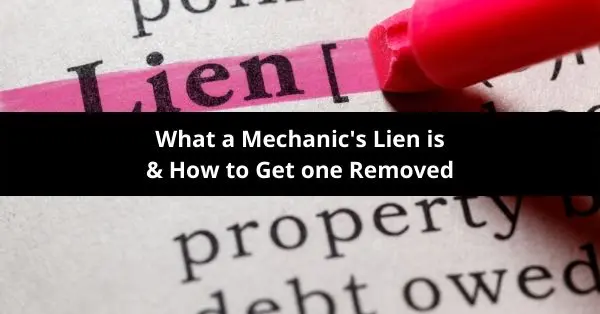A mechanic’s lien is when a person, company or service provider worked on a property, but the property owner or contractor in charge of the project never paid their bills. The lien is a way for the party that is owed money to try and prevent the owner from selling the property until their fees have been paid. Mechanic’s liens are headaches for real estate transactions as they tend to be stopping points because they can prevent a title (ownership of the property) from being transferred until the debt is cleared.
This is what we’re going to help you learn how to do in this post. And the first step is to discover if there is a mechanic’s lien on your property, or the one you’re looking to buy.
To find out if there is, or who put one on the property you are buying or selling, check your county’s website under property searches. If this information isn’t online, contact your county clerk or recorder of deeds and ask how to access your records.
Each state has their own mechanic’s lien systems with their own filing deadlines, and unique expiration schedules. For example, New York’s mechanic’s liens must be filed within 8 months and these liens expire in a year. In California, mechanic’s liens expire within 90 days if you don’t go to court. If your mechanic’s lien has expired, it is no longer enforceable however it will still show up on your property’s records. The good news is that removing or clearing a mechanic’s lien is the same process no matter where you live.
To remove a mechanic’s lien:
- Check to see if the mechanic’s lien is valid. A valid mechanics lien will start with you receiving a preliminary notice that will be filled out correctly and have been filed with your county clerk’s office within the required number of days.
- If you think the lien is invalid, go to the county courthouse with your paperwork and have it removed.
- Pay your contractor as soon as possible, or contact your attorney if you haven’t paid because of a dispute.
- If you’ve already paid the general contractor, contact them to discuss the situation and demand that they pay their subcontractors or suppliers. If the general contractor still does not pay, you will have to pay the subcontractor/supplier yourself.
Ways to avoid a mechanic’s lien:
- Choose your contractor wisely by verifying that there aren’t any lawsuits against them, and that they have a license.
- Require all contractors to submit conditional lien waivers which protects the property from a lien once a payment has been made. Lien waivers can be found online and should show the specific materials, work, and project it is issued for.
- Have the general contractor provide lien releases.
- Though it may cost more, have the general contractor get a payment bond, so any non-payment claims are made against the bond.
- Pay the subcontractors and suppliers yourself and issue joint checks.
- File a notice of completion to make the date official.
Mechanic’s liens are problematic when you’re selling or buying a property. That’s why it is important to have a title company do a title search which will look for issues like these. And if you’re selling your house and don’t want to deal with a mechanic’s lien, you can always sell your house fast to a company like ours and get a cash without the hassles of locating and paying service providers. Call us at and discover how much your house is worth today.


